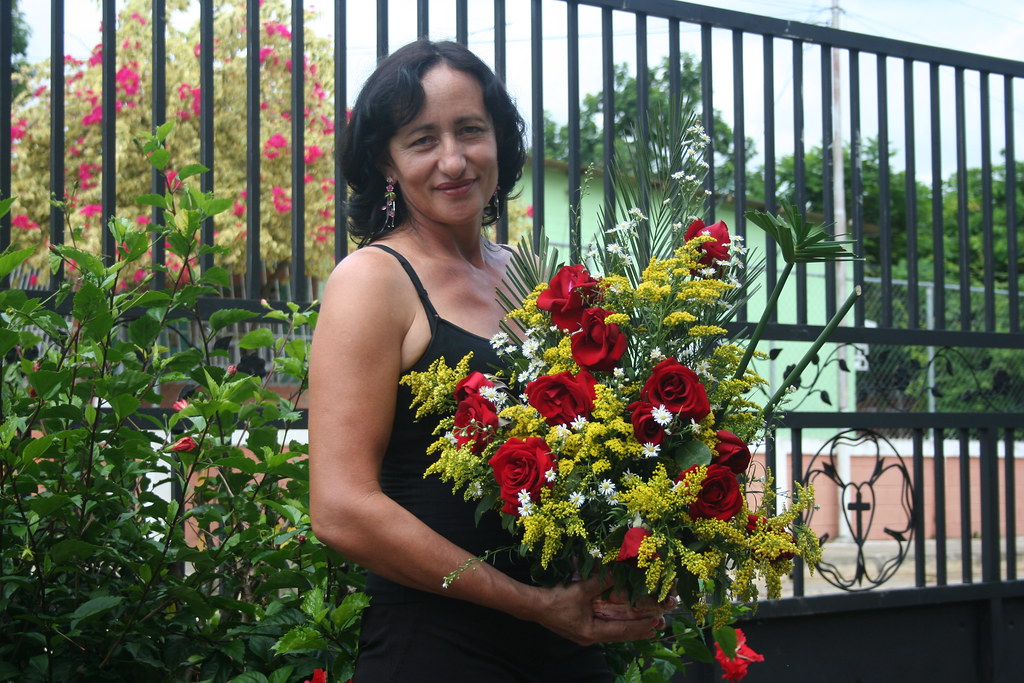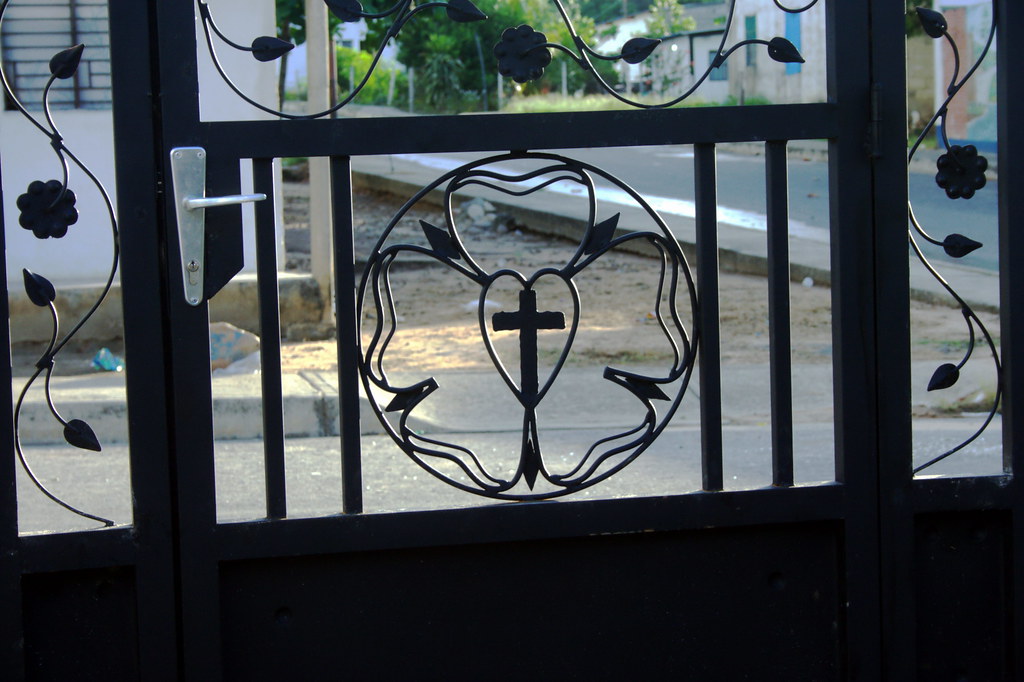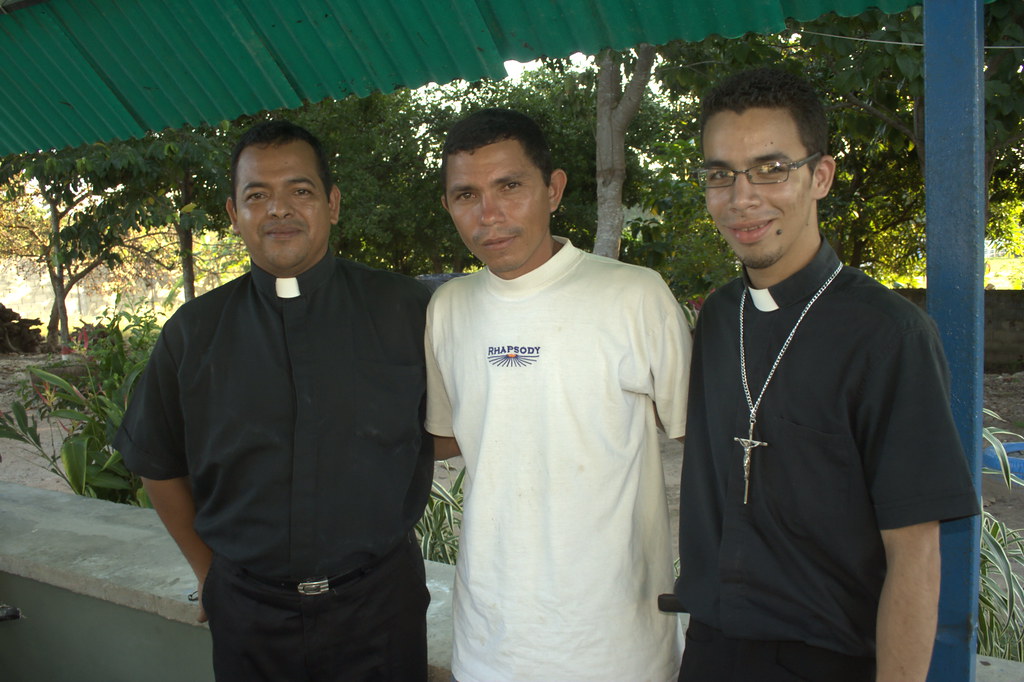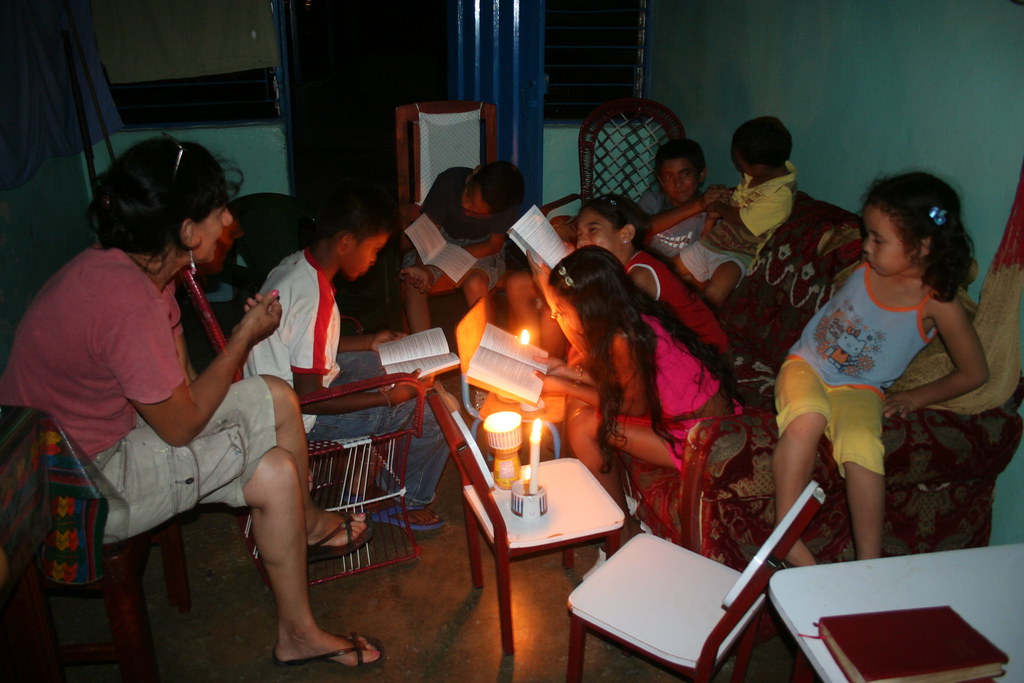
Open now thy gates of beauty,
Zion, let me enter there,
Where my soul in joyful duty
Waits for Him Who answers prayer.
Oh, how blessèd is this place,
Filled with solace, light and grace!
These words comprise the first verse of Catherine Winkworth's translation
of an 18th Century German hymn based on Psalm 100. During her lifetime (1827-1878), Winkworth translated more than 80 German "chorales" dating from the 16th to the 18th centuries for use in the Church of England. Her work has never been equaled and her translations are well-known not only to Anglicans, but also to English-speaking Lutherans around the world. She is credited with introducing a distinctively German musical form to a culture shaped by the English language. Winkworth also had 44 of her original poems published (in English), as well as two books documenting the foundation of mission work among the poor. The daughter of a wealthy textile mill owner, she herself was involved in charitable work among the disadvantaged in Victorian England and was a tireless advocate of higher education for women.
 "Open now thy gates of beauty" ran through my mind as I gazed upon the newly installed gates to our mission. God willing, this will be a place of His solace, light and grace. There are three gates, one large one for vehicles and large groups of people, and two smaller ones for normal entrance from the street. All three incorporate Luther's seal (the
"Open now thy gates of beauty" ran through my mind as I gazed upon the newly installed gates to our mission. God willing, this will be a place of His solace, light and grace. There are three gates, one large one for vehicles and large groups of people, and two smaller ones for normal entrance from the street. All three incorporate Luther's seal (thecross inside a heart inside a rose) as part of their design. The plan was to have Luther's seal on only one gate, but the man who did the ironwork was really taken with the design. Luz María was at pains to explain to him that the seal is not just a decoration, but is meant to identify who we are and what we believe.
Recently Luz María ran across a new community profile of La Caramuca that someone had printed up. Under the "Religion" heading, it said that there were two churches in La Caramuca, one being the Roman Catholic church on the plaza and the other being "Cristo Para Todas Las Naciones" ("Christ For All The Nations"). The second one would be our mission, because we dutifully distribute tracts printed by CPTLN, the Spanish arm of Lutheran Hour International Ministries. CPTLN has been broadcasting on Venezuelan radio and television since the 1940s and the phrase "Cristo Para Todas Las Naciones" is a familiar one, but CPTLN is not as strongly associated in people's minds with the Lutheran Church of Venezuela as we might like.
The struggle to establish an identity for the Lutheran Church of Venezuela takes on an added note of seriousness when you consider there is a decidedly non-Christian group active in Venezuela with a history of copying Lutheran symbols. This would be the Rosicrucian Fellowship, which has 20 lodges and chapters across Venezuela, including nearly all the cities where the Lutheran Church of Venezuela has congregations.
"Rosicrucian" is derived from both the Latin and German words for "rosy cross" and it is no accident that the Rosicrucians have an emblem that incorporates both a rose and a cross like Luther's seal.
The Rosicrucian Fellowship is one of those groups that seek esoteric or "hidden" knowledge under a veneer of Christian symbolism and terminology. Invariably such groups deny the sufficiency and clarity of the Bible as the rule of faith and seek a "deeper" source of knowledge.
At first the Rosicrucians claimed to have discovered the "philosopher's stone" (the secret of transmuting metals, especially lead into gold) and the key to physical immortality. Nowadays the Rosicrucians run newspaper ads making more modest promises of health and wealth. The main distinction between the Rosicrucians and other esoteric groups, from the Cathars of the 12th Century all the way back to the Gnostics of the early Christian era, is that the Rosicrucian movement emerged in 17 Century Germany, that is to say, against a background of Lutheran orthodoxy. Imagine, if you will, that the more recent New Age Movement in the United States had started in Wisconsin rather than California.
In fact, one of the founding documents of Rosicrucianism was written byJohann Valentin Andreae, a grandson of Jakob Andreae, one of the signers of the Formula of Concord in 1577 and an editor, along with Martin Chemnitz, of the Book of Concord in 1580. Johann Andreae was something of a wayward youth, having been expelled from the University of Tubingen for playing a practical joke and later flunking his ordination exam at the Stuttgart Consistory. Eventually, however, he was ordained a Lutheran pastor and became quite the respectable citizen. He freely admitted writing in his younger days the document that had come to be associated with Rosicrucianism, but claimed it was intended as a parody of similar writings. Not everyone believed this, and Johann Andreae's name still had enough of an association with the occult for him to be identified as one of the Grand Masters of the Priory of Sion, a "secret" organization actually founded in 1956, but which claimed origins in antiquity. The Priory of Sion was exposed as a hoax by scholars and journalists in the 1960s, but its false claims were asserted to be factual by author Dan Brown in the preface to his notorious novel, The Da Vinci Code.
The Rosicrucians later developed ties with the Masonic Lodge and piggybacked on the movement of Freemasonry throughout the world. As I have written before, the Masonic Lodge also is quite active in Venezuela.
Candles in the dark
 On Sunday, October 19, Pastor Adrian Ventura, president of the Lutheran Church of Venezuela, visited Barinas. That morning at Corpus Christi Lutheran Church, Eduardo played the guitar, I led the opening Service of the Word, and Pastor Adrian preached and administered the sacrament of Holy Communion. His sermon was excellent, but perhaps the most notable aspect of the service was that as it was underway, Venezuela experienced its third nationwide power blackout in the last six months. The electricity was cut off that morning and for most of the rest of the day.
On Sunday, October 19, Pastor Adrian Ventura, president of the Lutheran Church of Venezuela, visited Barinas. That morning at Corpus Christi Lutheran Church, Eduardo played the guitar, I led the opening Service of the Word, and Pastor Adrian preached and administered the sacrament of Holy Communion. His sermon was excellent, but perhaps the most notable aspect of the service was that as it was underway, Venezuela experienced its third nationwide power blackout in the last six months. The electricity was cut off that morning and for most of the rest of the day.The church has no air-conditioning, but there are two banks of fans on each side of the sanctuary to provide ventilation. However, these were not working during the blackout. Pastor Adrian and I both were wearing white albs over our regular clothes. Generally Venezuelans handle the tropical heat better than North Americans, but I noticed Pastor Adrian's face also was shining with sweat by the end of the service.
Later that afternoon, Pastor Adrian visited La Caramuca with Eduardo and Armando Ramos, former pastor in residence at Tierra de Gracia Lutheran Farm.
 The following day, October 20, we experienced another blackout in the evening. This one was local, affecting only La Caramuca, although that did not make a lot of difference to us. In addition to the three nationwide blackouts, there have been an increasing number of local blackouts nearly every week. Like most developing countries, Venezuela suffers from a lack of
The following day, October 20, we experienced another blackout in the evening. This one was local, affecting only La Caramuca, although that did not make a lot of difference to us. In addition to the three nationwide blackouts, there have been an increasing number of local blackouts nearly every week. Like most developing countries, Venezuela suffers from a lack ofadequate infrastructure (roads, telephone and electrical lines, waterworks). Years of inadequate public investment in infrastructure have resulted in a decaying power grid that is no longer capable of meeting consumer demand.
Nevertheless, despite the lack of electric lights, Luz María and I hosted our regular Monday confirmation class by candlelight. We have five young people who have been faithfully attending confirmation class on Sunday, Monday and Thursday. One of them is Sandro Peréz, the boy
who recently was hospitalized for dengue fever. We thank God that he is completely recovered. Our goal is to have these five confirmed by Pastor Ted Krey on November 2, when he visits Barinas for perhaps the last time before leaving Venezuela for the Dominican Republic.




